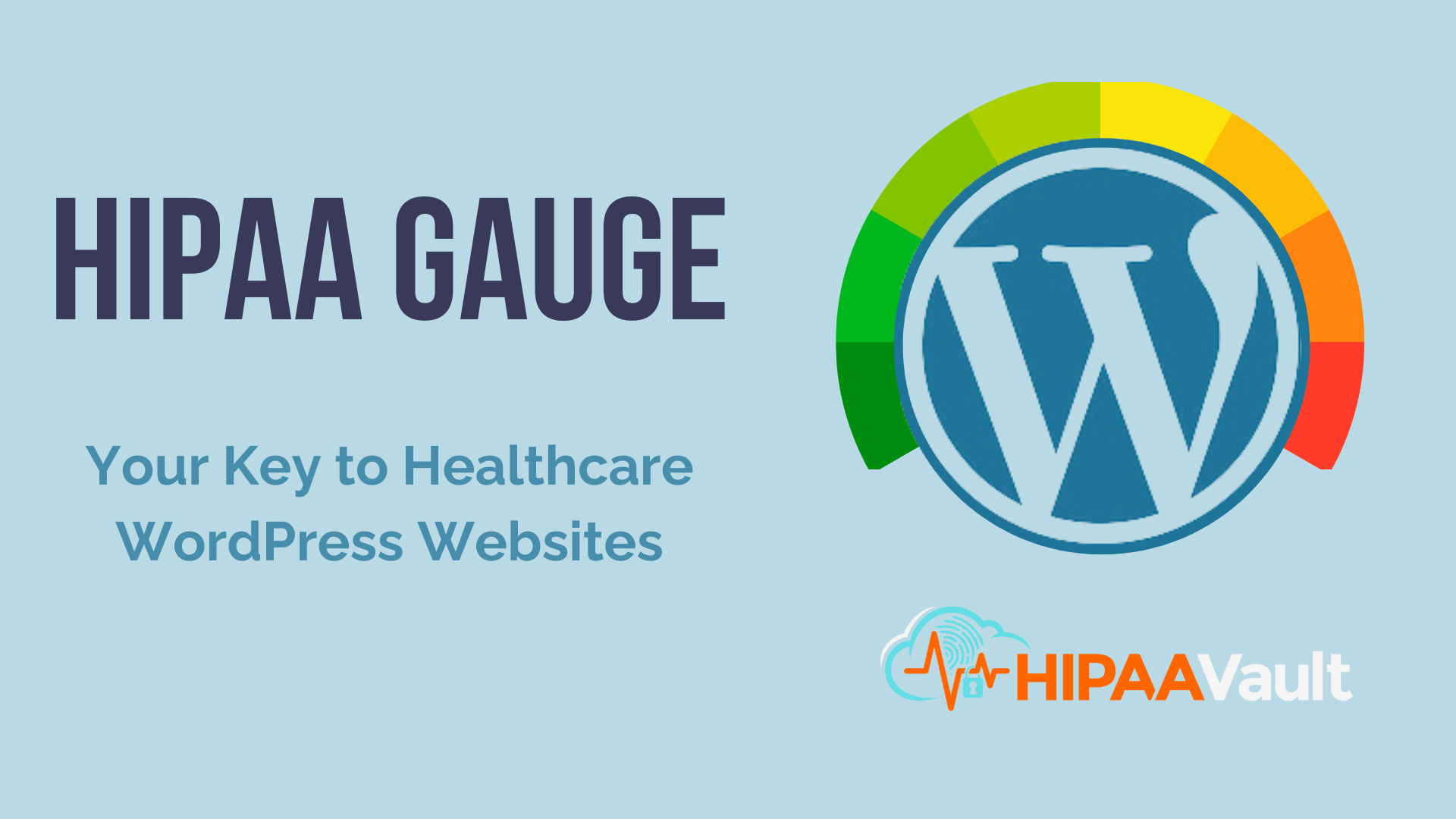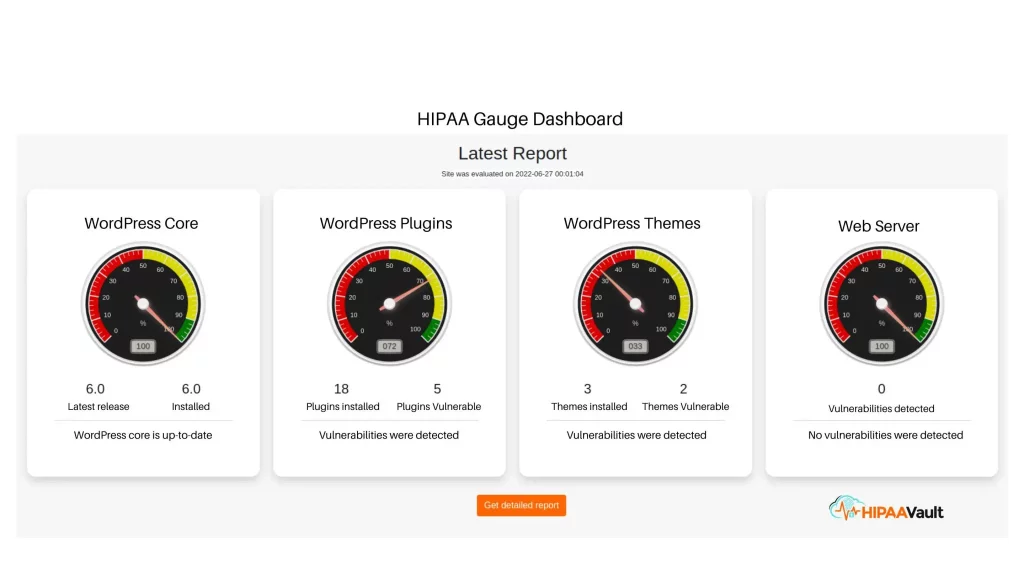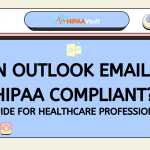
WordPress HIPAA compliance is more critical now than ever. With WordPress powering 43.2% of all websites on the internet, it has become a prime target for cybercriminals. This widespread use, combined with the sensitive nature of healthcare data, makes WordPress security a top priority for healthcare providers.
Introducing HIPAA Gauge: Your WordPress Security Checkup Tool
To address the growing need for robust healthcare website security, HIPAA Vault has developed HIPAA Gauge, a powerful WordPress security plugin designed to enhance your site’s HIPAA compliance.
What is HIPAA Gauge?
HIPAA Gauge is a WordPress plugin that provides a comprehensive security checkup for your healthcare website. But first, let’s clarify what a plugin is. A WordPress plugin is a piece of PHP software that’s easy to install and requires no coding expertise. It’s designed to add features and functionality to the WordPress core, and in the case of HIPAA Gauge, it focuses on security enhancements crucial for HIPAA compliance.
HIPAA Gauge works by scanning your site and presenting a dashboard with four gauges that reveal vulnerabilities in key areas of your WordPress installation: core, plugins, themes, and web server configuration. Each gauge uses a color-coded system (red, yellow, and green) to provide an immediate visual indicator of your website’s security health.
How HIPAA Gauge Enhances Healthcare Website Security
By performing regular WordPress vulnerability scanning, HIPAA Gauge helps healthcare providers identify and address potential security risks before they can be exploited. This proactive approach is essential in maintaining HIPAA compliance and protecting sensitive patient data.
Gil Vidals, CEO of HIPAA Vault, explains, “Security is a top concern for our WordPress healthcare customers, but serious issues can go unaddressed. HIPAA Gauge allows them to tell at a glance if any of these four critical areas need attention.”

Key Areas of WordPress Vulnerability
Understanding the common vulnerabilities in WordPress is crucial for implementing effective HIPAA security measures. Let’s explore the key areas that HIPAA Gauge focuses on:
WordPress Core Security
Keeping your WordPress core up-to-date is fundamental to maintaining a secure website. However, a significant number of WordPress sites are at least two versions behind, missing out on crucial security updates. HIPAA Gauge helps you identify if your core WordPress installation needs updating.
Plugin and Theme Vulnerabilities
While plugins and themes can add valuable functionality to your site, they can also introduce security risks if not properly maintained. HIPAA Gauge scans your plugins and themes, alerting you to any outdated or vulnerable components that could compromise your site’s security.
Web Server Configuration Risks
The security of your web server configuration is often overlooked but is crucial for maintaining a robust defense against cyber threats. HIPAA Gauge assesses your server configuration, identifying potential weaknesses that could be exploited by attackers.
HIPAA Security Measures for WordPress
Implementing strong HIPAA security measures is essential for protecting patient data and maintaining compliance. Here are some key areas to focus on:
Protected Health Information (PHI) Safeguards
Safeguarding Protected Health Information (PHI) is at the core of HIPAA compliance. This includes implementing encryption for data in transit and at rest, access controls, and regular security audits. HIPAA Gauge helps you identify areas where your PHI safeguards may be lacking.
User Access Controls and Password Policies
Implementing strong user access controls and password policies is crucial for preventing unauthorized access to sensitive data. This includes:
- Enforcing complex passwords
- Implementing multi-factor authentication
- Regularly reviewing and updating user access privileges
HIPAA Gauge can help you identify weak points in your access control measures, ensuring that only authorized personnel can access sensitive information.
Benefits of Using HIPAA Gauge for WordPress Security
HIPAA Gauge offers several key benefits for healthcare providers looking to enhance their WordPress HIPAA compliance:
Real-time Vulnerability Scanning
With HIPAA Gauge, you can perform on-demand scans of your WordPress site, getting real-time insights into your security posture. This allows you to quickly identify and address potential vulnerabilities before they can be exploited.
Comprehensive Security Dashboard
The HIPAA Gauge dashboard provides a clear, visual representation of your site’s security status. This makes it easy for both technical and non-technical staff to understand and act on security issues.
HIPAA-Compliant Hosting: The Next Step in WordPress Security
While HIPAA Gauge is an excellent tool for identifying security vulnerabilities, achieving full HIPAA compliance often requires a more comprehensive approach. This is where HIPAA-compliant hosting comes into play.
Managed WordPress Security Solutions
HIPAA Vault offers a fully-managed HIPAA WordPress solution designed to simplify the complexities of HIPAA compliance. This solution includes:
- 24/7 monitoring and malware scanning
- Regular updates and security hardening
- Implementation of the latest security plugins
24/7 Monitoring and Support
With HIPAA-compliant hosting from HIPAA Vault, you benefit from round-the-clock monitoring and support. This ensures that any potential security threats are identified and addressed promptly, minimizing the risk of data breaches.
Ensuring HIPAA Compliance with HIPAA Gauge
In an era where 45% of healthcare breaches are due to hacking or IT incidents, tools like HIPAA Gauge are essential for maintaining WordPress HIPAA compliance. By providing real-time insights into your website’s security posture, HIPAA Gauge empowers healthcare providers to take a proactive approach to data protection.Remember, good security practices should extend to all in your organization. As WordPress.org states, “Security transcends the WordPress application.
It’s as much about securing and hardening your local environment, online behaviors and internal processes, as it is physically tuning and configuring your installation. Security comprises three domains: People, Process, and Technology.”
By combining the power of HIPAA Gauge with HIPAA Vault’s comprehensive hosting solutions, healthcare providers can ensure they’re taking a holistic approach to WordPress HIPAA compliance. This not only helps protect sensitive patient data but also builds trust with patients and partners, ultimately contributing to the overall success of your healthcare organization.
HIPAA Vault is a leading provider of HIPAA-compliant solutions, including secure Linux hosting and WordPress HIPAA compliance. As a Certified Google Technology Partner, we enable healthcare providers, business organizations, and government agencies to secure their protected health information from data breaches, threats, and security vulnerabilities. Trust HIPAA Vault to mitigate risk, actively monitor and protect your infrastructure, and ensure that your systems stay online at all times.





